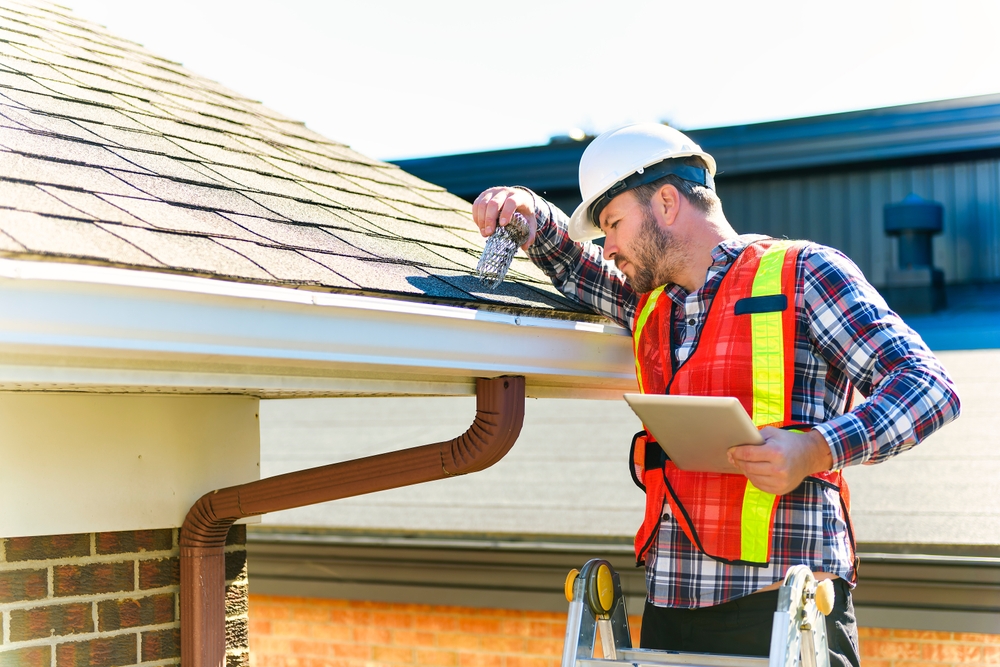Home Inspection in Texas: A Comprehensive Guide on Inspections, Licensing, and Job Requirements
Understanding Home Inspection in Texas
Buying a home is a major life decision for many, especially due to the significant amount of investment involved in the process. Hence, every homebuyer wants to ensure they are putting their money in the right property.
In order to find out whether a particular property is free or full of existing problems and potential future issues, property buyers often rely on home inspection.
Wondering what is home inspection and why exactly is it an important step of the buyer’s journey?
In this article, we will walk you through the basics of home inspection, including details about how it works and the different types of home inspections.
On top of it, we will also discuss in detail about the exact requirements and expectations to keep in mind before getting a home or a property inspected.
Keep on reading our in-depth guide to know everything about home inspections in Texas and how you can get started.

Introduction to Home Inspections
A home inspection is a process of getting your property inspected by a registered professional, also known as a home inspector.
Home inspections are carried out by potential buyers and investors to find out more about a property, and to uncover or reveal any potential problems, defects or issues related to it.
Whether you are a buyer or a seller, undergoing a home inspection is often an important part of a real estate transaction, as it is critical for evaluating the right price and value of a home.
Typically, a home inspection is often carried out by a dedicated home inspector who will typically look at the property in-detail.
An inspection usually covers inside and outside (interior and exterior) of a property, including - structural components, roofs, furnishings, HVAC, furnace, fixtures, electrical systems and plumbing.
A home inspection happens when a seller and a buyer have agreed to initiate the discussion regarding closing a real estate transaction.
However, inspection is completed before the buyer agrees to an offer or closes the deal from their end.
Home inspections are scheduled and arranged by the buyers after they have signed the purchase agreement. Generally, it takes between 2 to 4 hours for completing a full inspection of a home.
Importance of Home Inspections
Completing a home inspection is a common part of the buying and selling process during a real estate transaction.
Wondering what do home insurance inspectors look for while conducting an inspection?
Typically, a home has more than 10,000 parts which work together as a singular unit. Thus, home inspections are useful to find out if any particular or multiple parts of the home have ongoing issues or potential problems which might arise in the foreseeable future.
The significance of conducting a home inspection can be attributed to the fact that it is often included as a contingency in the purchase agreement.
Inspections of homes allows a buyer to dissolve the contract if any major issues or problems are found out during the home inspection.
However, if a buyer finds out about minor or small issues, then they can leverage the home inspection report provided by the inspector to negotiate on a property’s selling price and value.
Thus, home inspections are a way to protect a buyer’s rights and to ensure both the buyer and the seller are on the same page.
It ensures that homebuyers are getting the right deal for their money and are not getting misled into purchasing a property with damages or issues.
Types of Home Inspections
For buyers in Texas looking for their next home, buying a property can be a huge financial and personal commitment.
When it comes to getting a property inspected, there are many different types of home inspection in Texas that you can opt for.
Listed below are some of them along with their included areas:
- General Inspection: This type of home inspection is intended to cover the superficial aspects of the property, including its exterior and interior sections. Some of the aspects covered during a general inspection include: floors, walls, ceilings, rooms and bathrooms, attic, roofs, coverings, chimneys and stoves, HVAC, plumbing, porch, decks and patio amongst other things.
- Molds and Pests Inspection: Presence of pests and molds can be a nightmare for a home owner and buyer, therefore it is one of the most commonly inspected aspects during a home inspection. Pests such as termites, ants and beetles can damage wood and surfaces. Molds can infect the home causing bacterial and fungal infections.
- Foundational Inspection: During a home inspection in Texas, some inspectors will also look for structural and foundational defects and issues present in a property. Common concerns include - water seepage, cracks, sinking, roof leaks, line bursts and sloping which could lead to fundamental problems with a property’s structural integrity. These issues often lead to depreciation in the property’s value due to the effort and cost involved.
- Infrared Inspection: This is one of the most recent and advanced home inspection methods in which IR (Infrared Rays) are used to find hidden problems or defects such as blockages or damaged insulation. With this method, there is no need for tearing up walls or damaging ceilings.

Benefits of Hiring a Professional Home Inspector
If you are a buyer looking to invest in a home in Texas, it is prudent to seek the expertise and advice of a professional home inspector.
If you are an owner or a seller looking to close a deal quickly, encouraging a home inspection tour can help the buyer feel more confident in their decision of choosing your property.
Home inspection in Texas is a critical step which must be completed with careful consideration and effort, before you agree to purchase any property.
Let’s look at some of the benefits of an inspection in detail below:
- With a home inspection, buyers can evaluate and assess the condition of a property objectively. This helps them to make an informed purchase or investment decision. Based on the condition, the client can decide whether buying a property will be a feasible short and long-term investment or not.
- Home inspection can unveil any existing damages and potential issues which could be bothersome for a buyer in the future. Using the reports provided by the home inspector, a buying agent or party can save themselves from future losses and aggravation while helping them minimize risks.
- Home inspections are a structured and time-saving way to get a checklist for a property’s structures, elements, parts and other components. This checklist can come in handy during negotiations or claims of any kind in the present and in the future between the parties.
Requirements to Get A Home Inspector’s License in Texas
Working as a home inspector can be a rewarding and enriching career experience in a field which is constantly growing with the times.
Did you know that as a licensed home inspector, you can earn as much as $100K annually in Texas?
If you are ready to work in a profession where your knowledge and skills will be in high demand, then this could be the career for you.
It can take you anywhere between a few weeks to a couple of months to complete your education, training and meet all the state enforced requirements to earn your license.
Keep on reading to find out about the licensing process, minimum qualification, education criteria and the basic home inspector job requirements to get started.
Here it is important to touch briefly about getting a Texas real estate license so that there is no confusion with a home inspector’s license since both are related to the real estate sector. If you are wondering how to get a Texas real estate license, the first step is to go through a state-approved Texas real estate license course lasting 180 hours. Once done, pass the licensing exam to get a Texas real estate license.
Overview of Licensing Process
In Texas, three types of licenses are available to inspectors.
The Texas Real Estate Commission (TREC) requires every applicant to start their career with an entry-level apprenticeship license. The purpose of this license is to provide a fundamental understanding of the roles and responsibilities of a home inspector.
In order to become an apprentice home inspector in Texas, you will need to fulfill certain general criteria along with the state’s educational requirements. Listed below are the general requirements to obtain an apprentice’s license in Texas:
- Be at least 18 years of age or older.
- Be a citizen of the country or a lawfully admitted alien.
- Follow the guidelines of TREC for meeting standards of honesty, integrity and trustworthiness.
If you clear the above requirements, the next step is to fulfill the educational requirements which we are going to talk about next in this article.
Educational Requirements
Fulfill TREC-stipulated minimum education norms to obtain a home inspector license in Texas.
Based on the type of license you are applying for, your education requirements will change.
For example - if you are applying for the standard Texas Real Estate Inspector License, then you will need to complete 154 hours of coursework as part of the standard training.
Whereas, if you are interested in obtaining the Texas Professional Real Estate Inspector License, you will be required to complete a minimum of 194 hours of coursework education.
With that said, irrespective of which type of inspector license you are applying for, you must take and successfully complete the 40 hours of practical training which is also a part of the educational requirements to be a licensed home inspector in the state of Texas.
Experience Requirements
Simply completing the pre-licensing education coursework will not suffice to obtain a real estate home inspector license.
You must go through at least 3 months of work experience as an apprentice inspector under the mentorship of an inspector in Texas.
Further, you must also fulfill the requirement of completing at least 25 state inspections under the immediate supervision of a state approved inspector.
Once you have successfully completed the work experience requirements, the next step is to submit the application to Texas Real Estate Commission (TREC) and get your approval to appear for the final exam.
Exam and Certification
After you have completed the pre-licensing education and met the experience requirements, your next step will be to appear for the National Home Inspector Exam in Texas.
You will have to take and successfully pass the Texas Real Estate Inspector Law examination which will consist of 200 questions to test your knowledge and understanding of the industry.
Typically, you will be asked questions about the following areas:
- Site Review and Property Inspection
- Property Analysis and Findings Reporting
- Professional Duties and Responsibilities
Note that you will have to pay a one-time fee of $199 to take the exam.